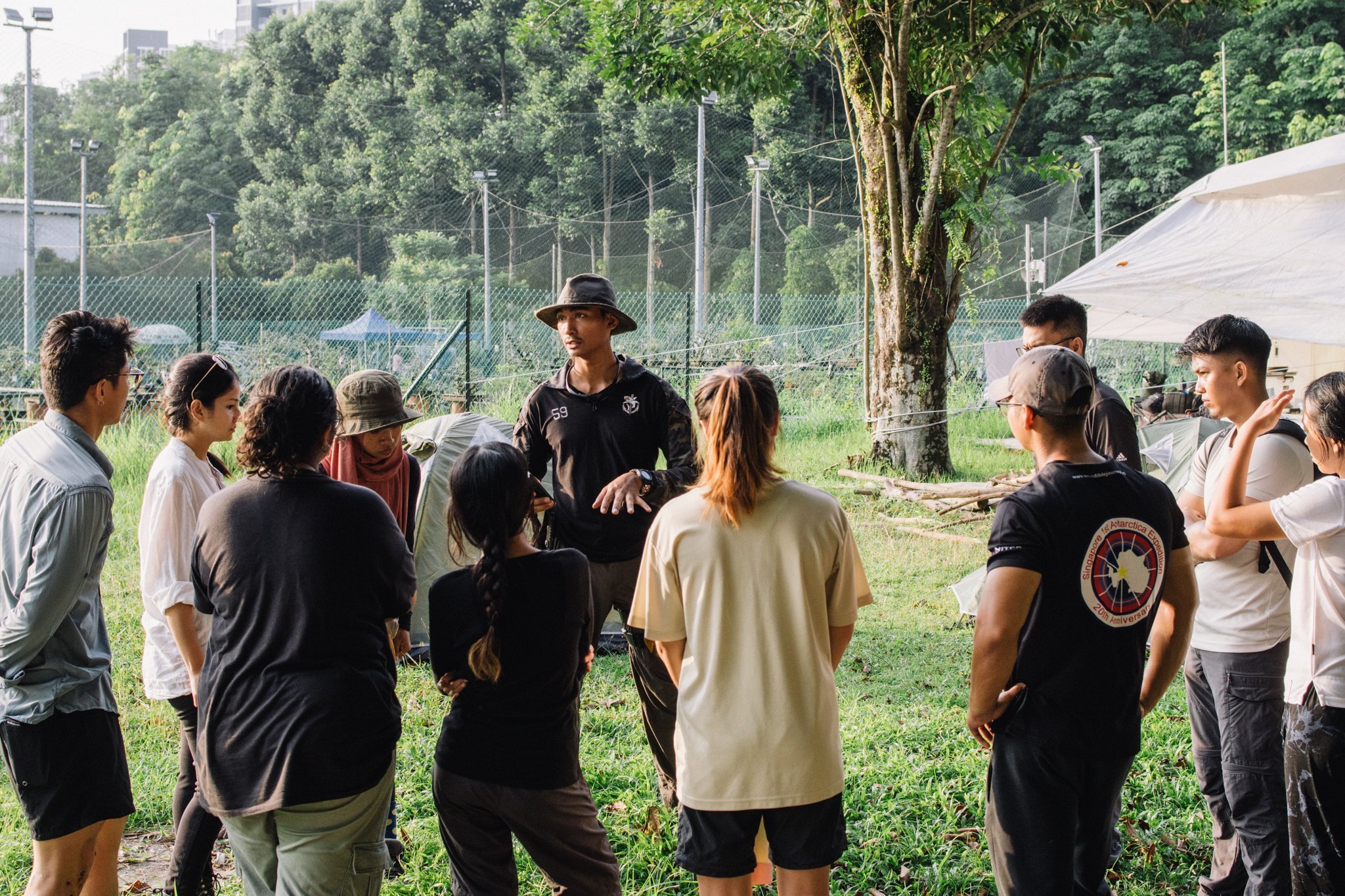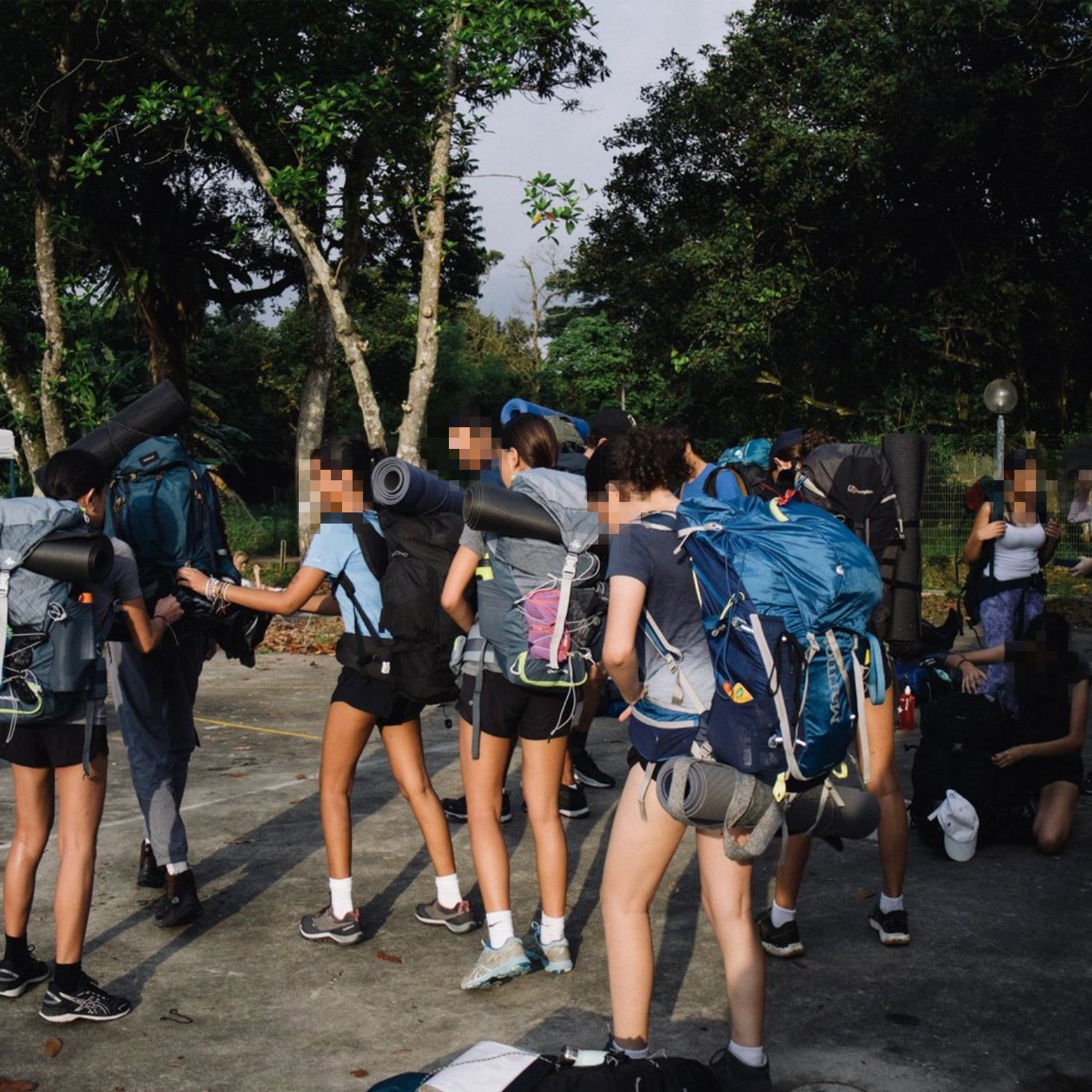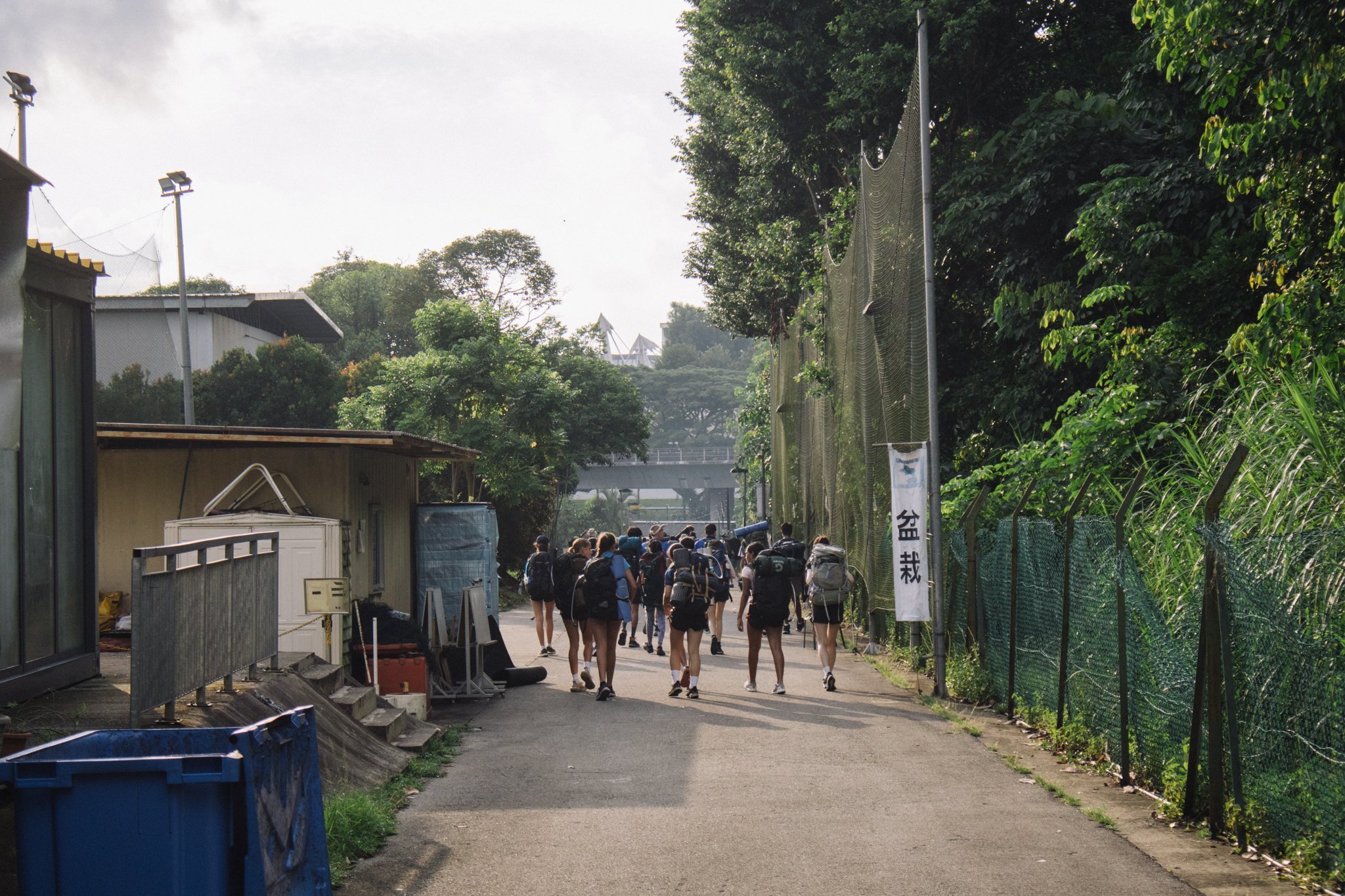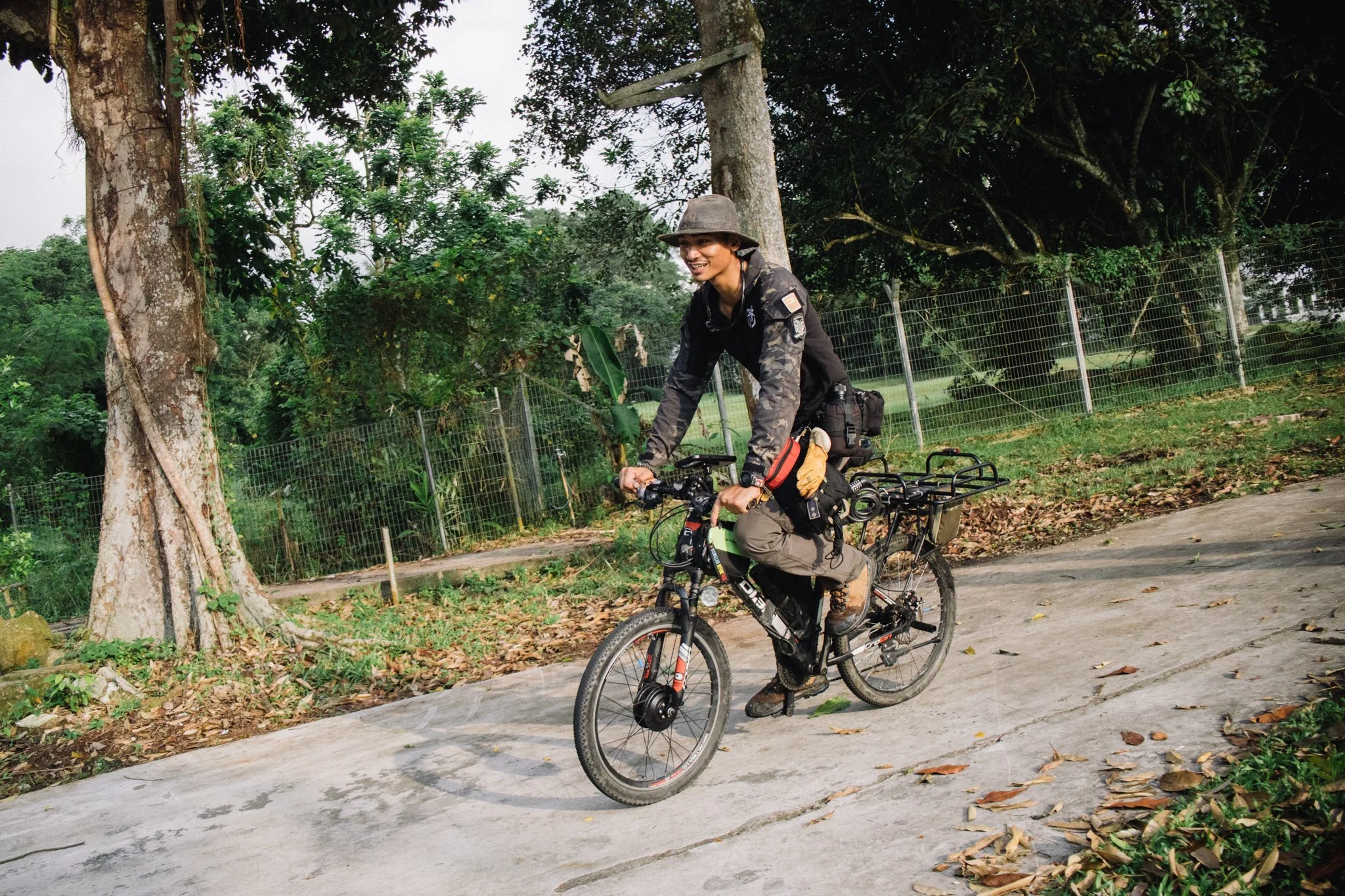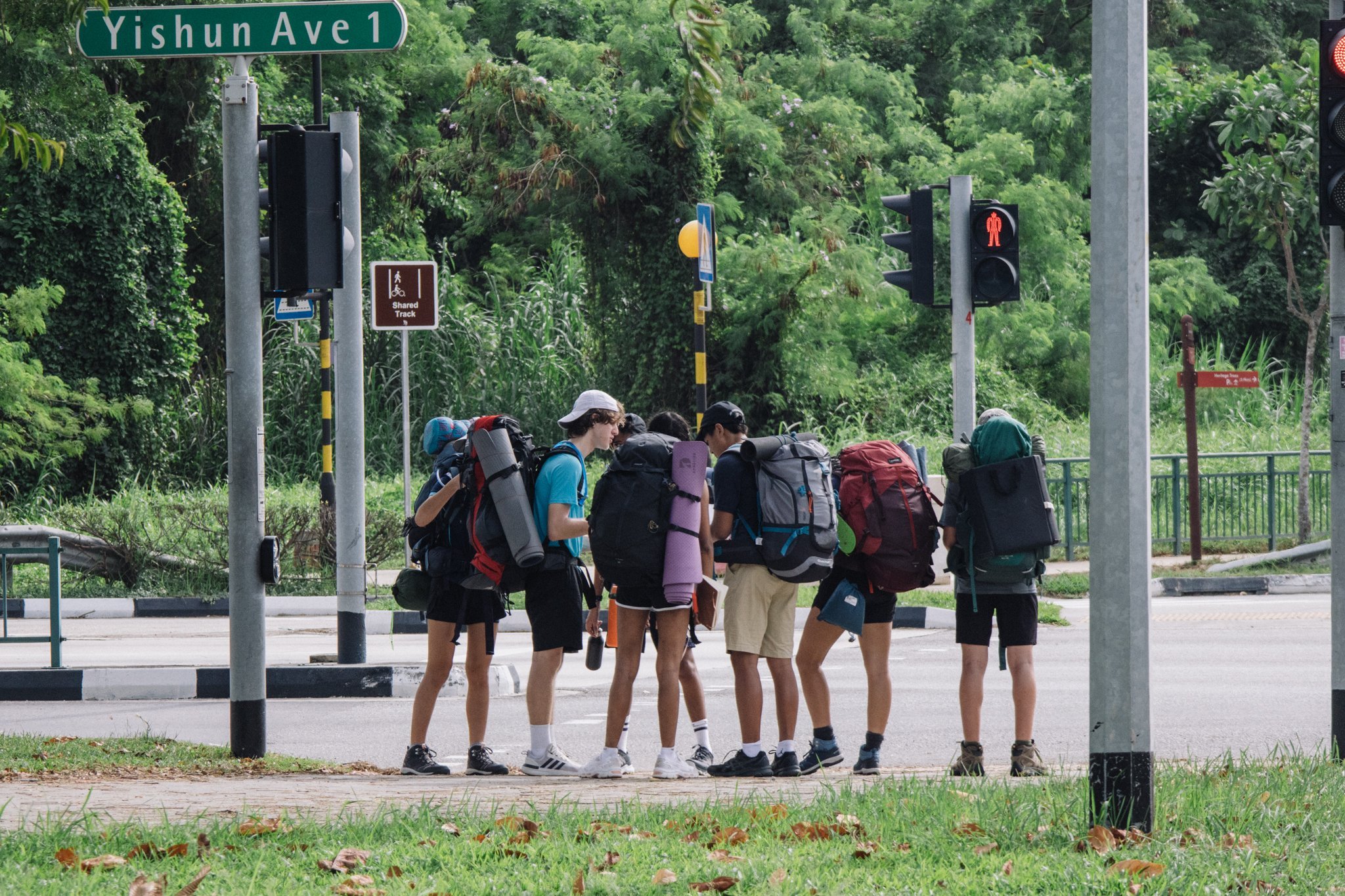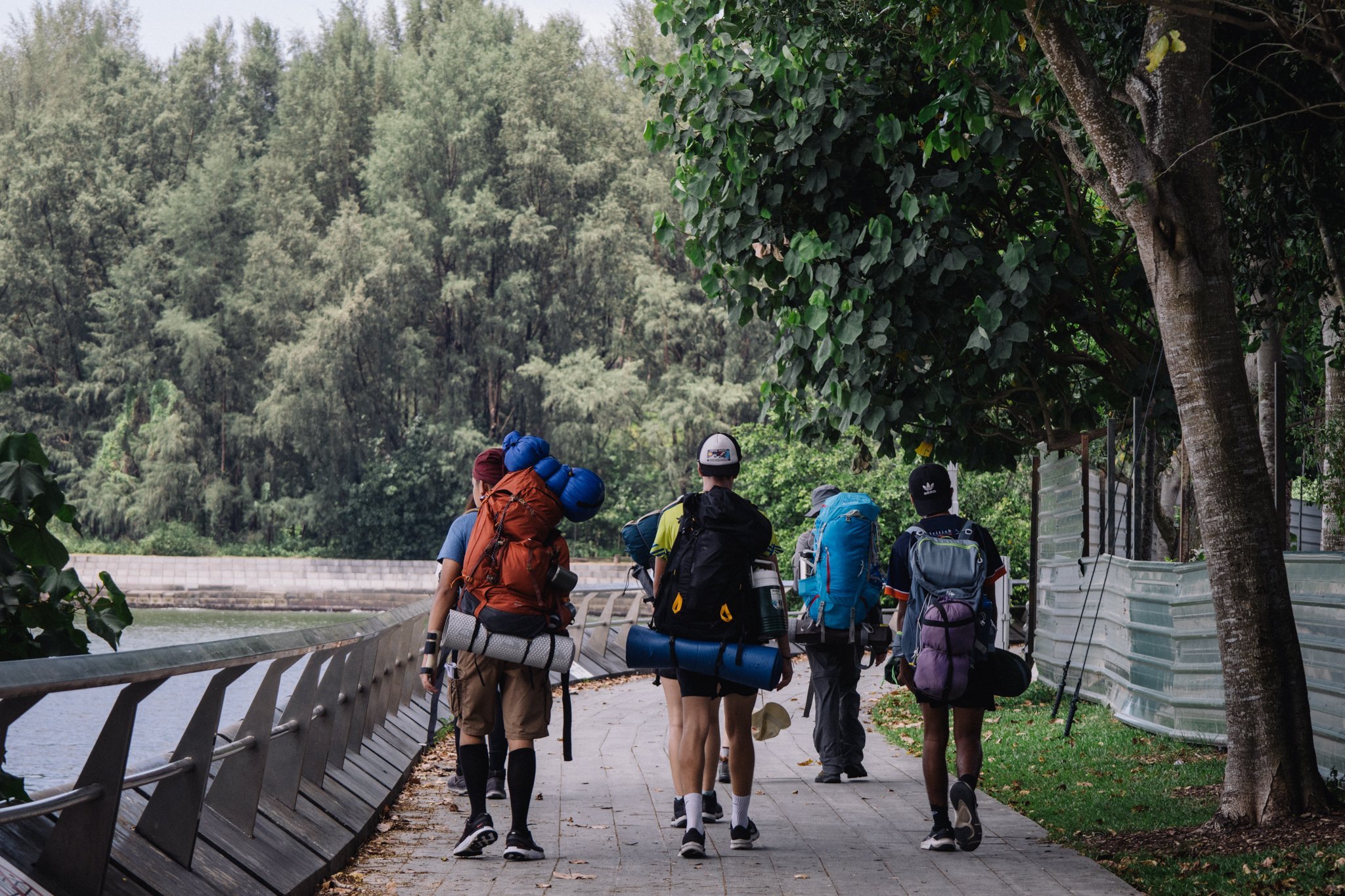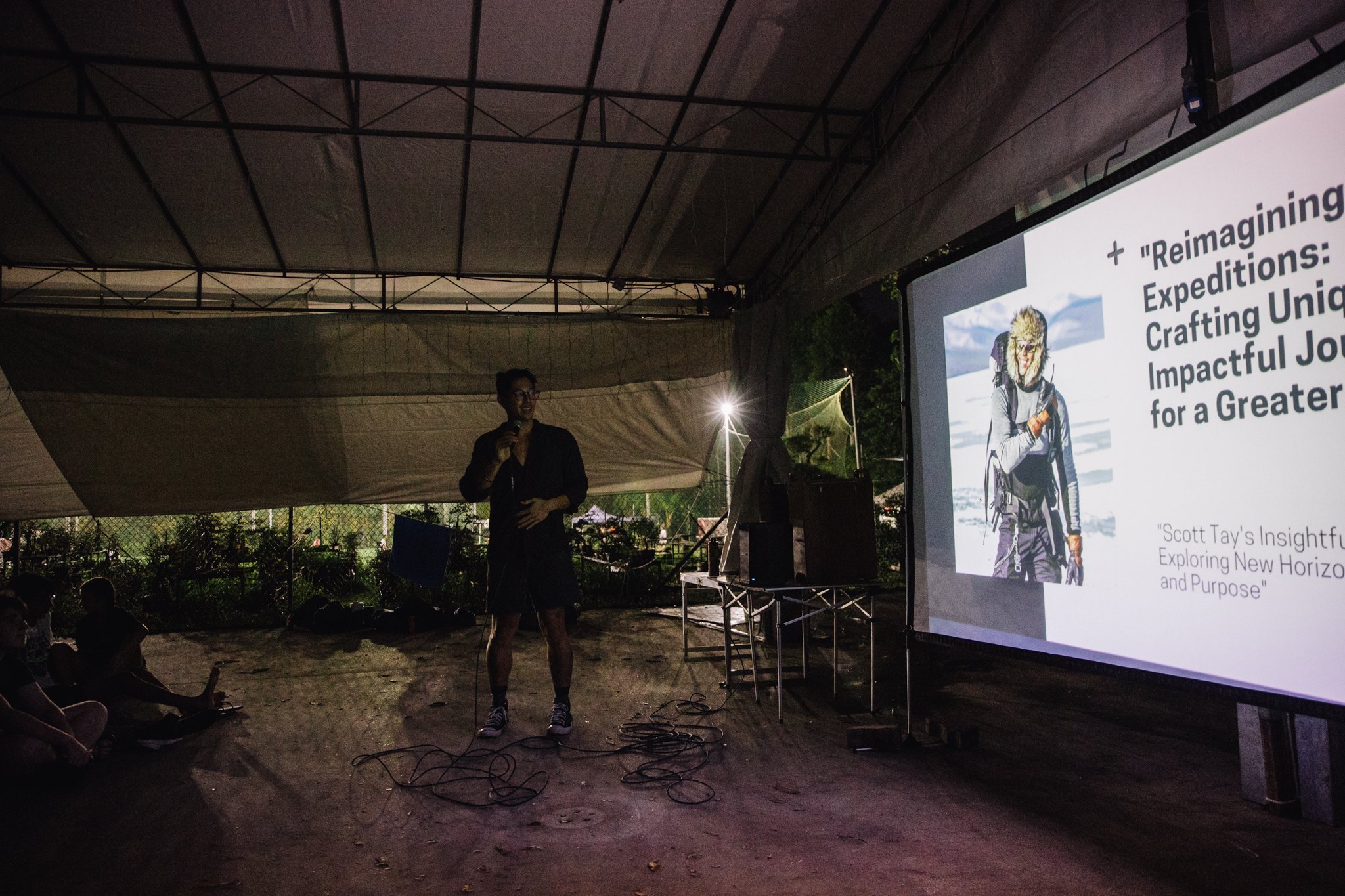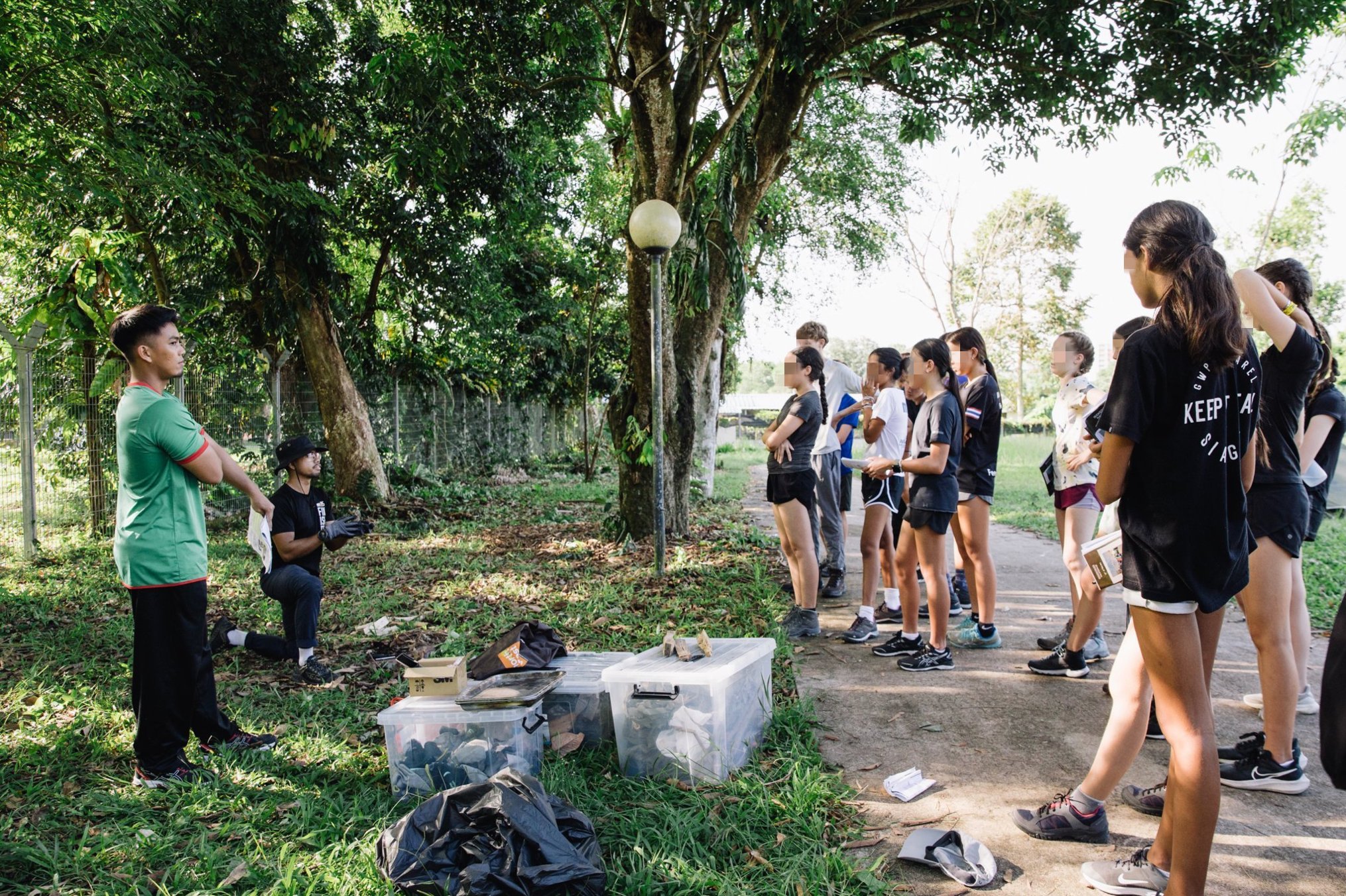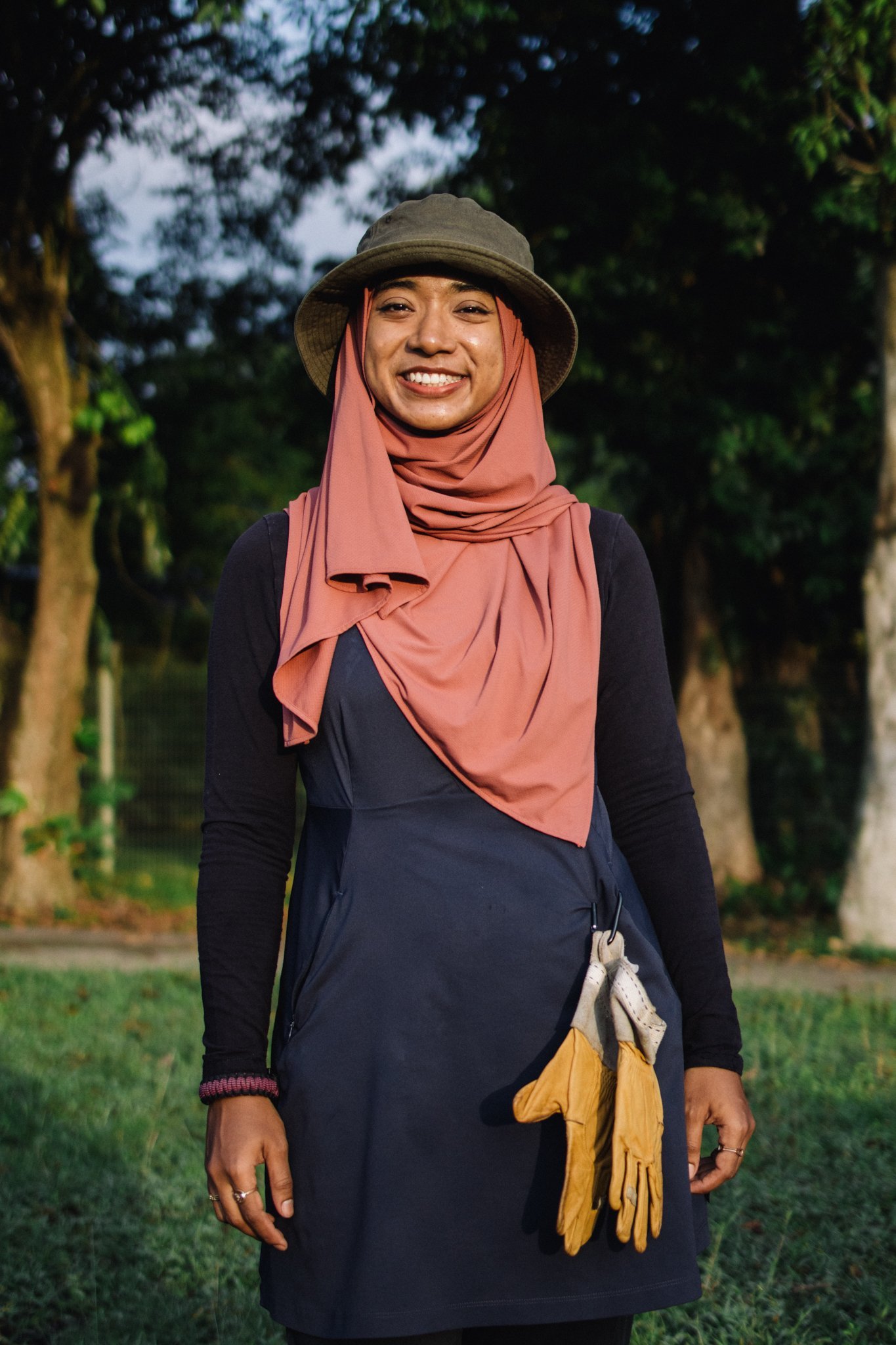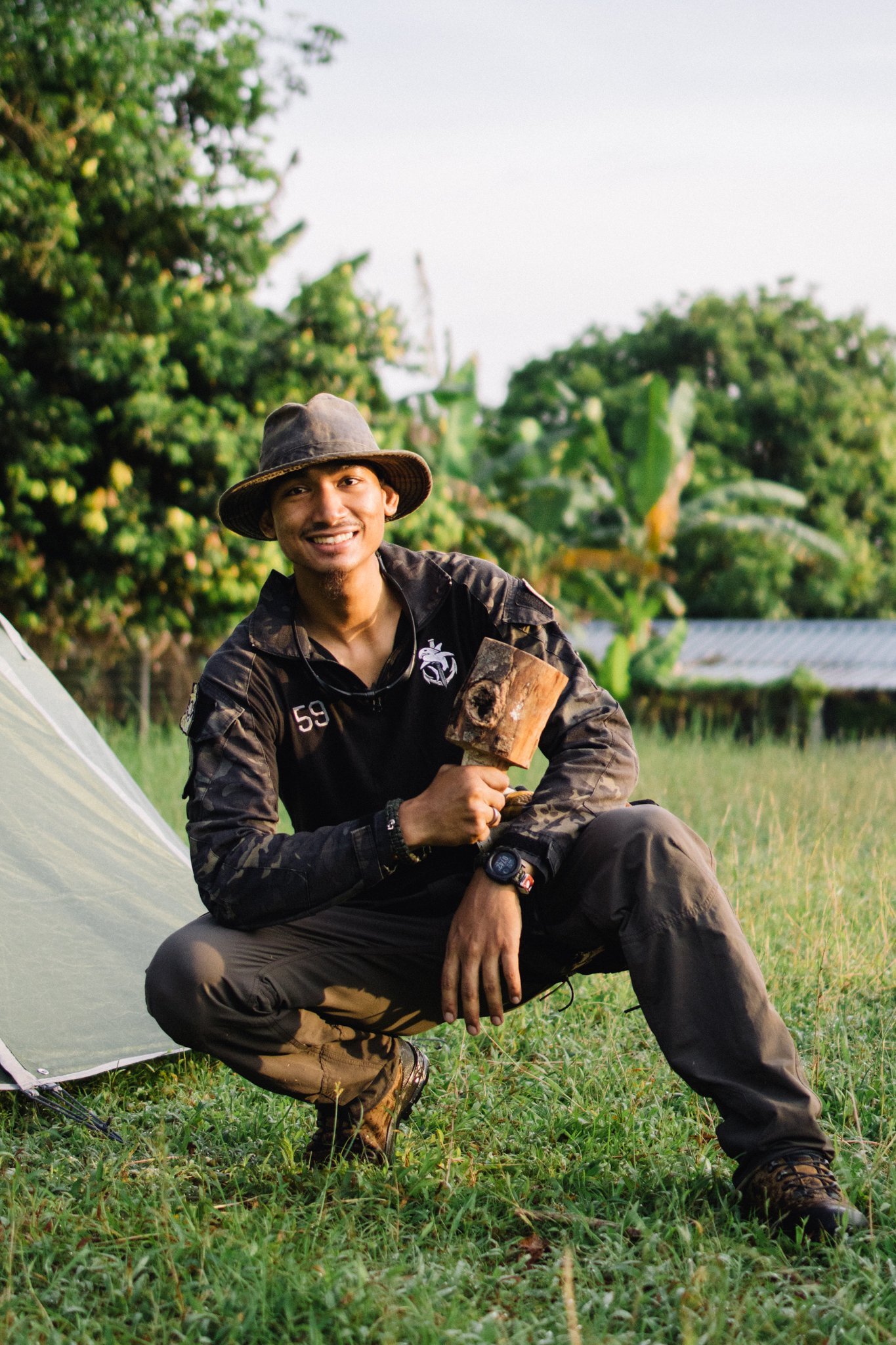Hiking up to Bronze with Dulwich College Year 10s for the Duke of Edinburgh Award!
This article features the highlights of our 5-day outdoor expedition programme with Dulwich College.
Beyond Expeditions came in as the camp operator for Dulwich’s Duke of Edinburgh (DOE) Bronze Award, a prestigious framework that certain international schools adopt to challenge their students with an adventure in the outdoors.
If you’re an international school teacher looking for a camp operator with sufficient resources and skilled trainers to raise your students’ competency in the outdoors, with a hands-on AND hands-off approach, this article is for you.
Note: We conduct programs in both Singapore and Malaysia.
As an international school teacher, what truly matters to you when selecting a camp operator for your students’ outdoor education experiences?
Dulwich Year 10 students embarking on their Practice Journey during our 5-day programme with them.
With Beyond Expeditions, this is what you’ll get: a power-packed team of trainers who are not only highly skilled and knowledgeable about the outdoors, but also possess a strong desire for the students to experience challenges in a personally transforming way.
Beyond Expeditions is picky that way, by only selecting trainers who care enough.
This article will bring you through the way Beyond Expeditions’ team of trainers set up each segment, and a glimpse at how the students were experiencing the programme. So, you’ll essentially be reading about:
-
This is where you’ll be able to witness the intangible effects of working with us. Personally, I’ll say being able to gain insghts into these students’ experiences is equally as important as the skills and knowledge we can impart to them, because the way students navigated these five days with us is direct feedback about the experiences we can create for your students too.
-
This article will not dive deep into what we teach to the students, because our secrets still have to be kept. Instead, you’ll get to read about the way we set up each segment, and see for yourself how we differ from other local camp operators when it comes to imparting relevant outdoor survival skills and knowledge to your students.
For the teachers who are not huge fans of reading articles and just want things straight to the point (I’ve got your back, guys), I’ve compiled a list of some unique elements of Beyond Expeditions’ outdoor programmes for students. This list isn’t exhaustive, really. But at least you don’t have to read everything.
-
Instead of using lighter or matchsticks like other outdoor companies, we give them a striker and ferrocerium rod. They learn to strike the rod to create sparks and start a fire.
For advanced campcraft sessions, we also teach a different skill known as friction fire lighting, which includes the bow drill technique.
-
Beyond Expeditions has this way of introducing (not teaching, nor telling) students to the challenges of the outdoors.
Trainers step in to fill in the gaps of students’ outdoor survival skills and knowledge. Then, its over to the students to practice and learn via experience, and we step back to let them to figure things out on their own.
-
When trainers see students struggle, or make mistakes during the programme, they let them proceed.
Beyond Expeditions believes that mistakes are inevitable and effective in helping a student grasp important skills and knowledge about the outdoors.
Intervention happens only when safety is as risk.
-
Beyond Expeditions is pretty selective in the trainers they choose for programmes.
Two main criteria;
Highly skilled, knowledgeable and adaptable in the outdoors
Invested in the growth and development of every student we meet
We are not here just to teach. We are here to nurture students in all aspects; physically, mentally and emotionally too.
For the teachers who want to comprehensively read what went down in this camp with Dulwich College’s Year 10 students, the rest of the article is for you.
[SEGMENT]: Stages of Team Development
On the first night, our Head of Outdoor Education, Shah gifted our students with the “Stages of Team Development” framework. This segment was specifically included in this program because we wanted to help the students be able to understand the development of their team and think about how they can bring their team from wherever they are, to the optimal “Performing” stage by the end of this camp.
The focus is to equip them with a different, supportive lens of perspective when they look at their team, and help them to understand what they can do with their team at each point of the team’s phases.
I’m introducing this right at the start of this article, because I believe it’ll enrich your experience of reading about how these students showed up in different segment of the camp. But I won’t be explaining in detail about these stages. Do proceed to read more about Tuckman’s stages of group development online; there is an abundance of resources to tap on!
-
Forming happens when the team comes together and learns about the task. They agree to approach the task together, but pretty much operate on their own.
You’ll soon be able to see how most groups entered this stage in the beginning segments of the camp, as they began coming together as a team to pick up campcraft skills.
-
Storming starts when tension begins to rise within the team, because of conflicting preferences of working style. At this point, more vocal members will begin bringing up what they're uncomfortable about with each other. The way to work through this would be for the team or team leader to address these conflicts openly and directly, and guide the team to arrive at a solution to navigate each conflict, that allows all members to proceed with working with each other comfortably and effectively.
In this camp, some teams very quickly entered this stage the moment they were tasked to go the supermarket together. Some teams were even faster, entering this stage in the first segment, where they picked up navigation skills.
-
Norming is where you'll usually begin to see a spirit of cooperation within the team.
Team members learn to accept the working styles, and begin appreciating each other’s strengths. There’s significant comfort between the members, and one evident sign that a team is at this stage is when they choose to spend time together for reasons beyond the group’s goals.
If you want to witness this, it happens most evidently during the second Outdoor Cooking segment! Students coming together on their own accord, shared laughter and simply enjoying being in each other’s space.
-
When a team is ‘Performing’, you’ll typically sense a high level of motivation within the team. No supervisor is required to guide the team through conflicts at this point because they have grown to be capable of navigating any difference that may arise. The team is competent and accomplishing spectacular results together where goals are involved.
Some teams did manage to move into this stage, during their Qualifying Journey! No trainers nor teachers present with the team, yet they worked with their differences well and completed the trek effectively.
[SEGMENT]: Route Planning
“If you fail to plan, you plan to fail.”
That was the main theme of this segment.
In brief, this segment was where our trainers explained the 5 D’s of Navigation, before guiding the students on how to read a compass.
“We’re going to trek 5km, at 110 degrees bearing. This will take us 3 hours, and we’ll need to look out for these landmarks to ensure we’re on the right track. We can take breaks at these three checkpoints, and let’s have Gabriel and Kira in charge of carrying half of the food each, before exchanging it with Sasha and Terry at Point C…”
^ well, a snippet of the ideal conversation we hope every group eventually arrives at!
The groups had to learn what it means to plan well, because it’ll prevent them from getting lost, and from having to waste time relooking at the map to figure out where to go during the trek itself.
They’re given maps, where they learn to plot out the distance and the exact route they’ll take from base camp to each checkpoint.
Our trainers then taught them how to gauge their walking duration and distance as a team, before proceeding with the task of filling up their route cards. Each card required them to calculate the distance they’ll travel between different checkpoints and the directions they’ll take.
All trainers were instructed to give the students space to explore this segment on their own. We wanted students to put their navigation skills to the test, while we observe them and step in with any important knowledge and skills they’re unsure of. This is where you can begin to see what we mean by “hands-on, hands-off”; it’s a balance between stepping back and letting the students figure things out, and stepping in when we identify gaps to fill.
[SEGMENT]: Outdoor Cooking
Some of the students learning how to use the Trangia set.
Shah did a refresher on how to use the Trangia set to align everyone’s understanding of the cooking set-up, since some students were new to this while others were familiar with it. These were the various steps he covered:
A glimpse at the options the Dulwich students had access to!
how to open the set,
how to start the fire,
how to pour the fuel,
how to change the configuration from pan to cooking pot,
how to extinguish flames properly
all safety precautions, such as wearing covered shoes while cooking, not staring directly into the fire while cooking to prevent burning fringe and hair,
The students were then tasked to handle their own dinner, with instructors roaming around to watch for safety, and ensure no one is playing ball or soccer nearby.
Unique value-add: instead of using lighter like other outdoor companies, we give them a striker and ferrocerium rod. They learn to strike the rod to create sparks and start a fire.
What happened within the segment:
It was heartening to notice students helping each other out by reminding them how to use the pots and pans. After dinner, they also kept reminding each other to work together to clean all utensils. They were tasked to take care of themselves in all ways possible, and they definitely delivered.
For Day 2’s outdoor cooking segment, we challenged them to cook fried rice; adding an Asian touch to the outdoor cooking experience! This was new for most of the students as most of them had never cooked rice before. We designed it to be exactly like MasterChef, where students had to cook and present nicely to their teachers, who will then decide the winner. The air sparked with competitiveness as every group rose to the challenge, wanting to make the best fried rice amongst the rest! It was truly exciting to witness.
[SEGMENT]: Supermarket
The students were taught to consider the weight of their bags, when making their purchases.
Trainers provided a template for the students to list all items they’ll want to get to last them through two days’ worth of meals.
We guided them through various considerations, such as:
having a budget,
how much weight of food they’ll want to carry along,
how much food they really need for sustenance,
the types of food that can last through two days in a hot and humid environment
(Our food options are complety nut-free and plant-based. We provide gluten-free and vegan options too.)
and the amount of time to prepare each food per meal.
Once again, this opportunity tested every group’s ability to navigate challenges within the team.
Everyone had different opinions on what they should buy, and we got to see several teams move through another ‘Storming’ phase within the team. But this time, guess what? There’s evidence of the teams learning to be with each other better, because the way they navigated their differences this time was smoother and faster. Pretty amazing to be seeing these students learn to take care of each other’s individual perspectives, while still working the team towards the end goal of completing the final Qualifying journey together in success.
[SEGMENT]: 6-HOUR PRACTICE JOURNEY (DAY 1, 2)
The trainers being briefed by Shah, our Head of Outdoor Education, prior to the start of the Practice Journey.
Our set-up
A trainer or a teacher is attached to every group throughout the 18km trek, and all trainers were instructed to step back and let the team be. We wanted to give students the opportunity to figure out how they can move through their ‘Storms’ as a team, and for the students to learn to conquer the outdoors on their own by practising their map-reading and navigation skills. Most of the teams were quite familiar with the route, and there was only one team who took one wrong turn and ended up having to make a big detour (this was spotted by our Head of Outdoor Education going around on a mountain bike as a safety rover. He noticed the group walking the wrong way but just let them be, so that they will learn relevant skills for future routes.)
Head of Outdoors, Shah, on his mountain bike as a safety rover.
Students’ experience within the segment:
After setting the students up for the Practice Journey, here’s what we observed. Some groups were already moving from ‘Forming’ to ‘Storming’, mainly because opinions were pretty divided within the team. For example, the girls wanted to take breaks when they were tired because “we can go further when we rest more often”. But the boys disagree, stating that whenever the team felt tired, “we should keep going faster, then we rest longer at base camp”. Frustrations were evident across different groups, and the struggle to work with each other’s personalities and discomforts came up strong during different parts of the Practice Journey (18km).
One of the teams gathering around to discuss their route. | On their way back to base camp.
Despite everything, all teams made it back to base camp on time, despite encountering friction within the teams. With several teams right smack in ‘Storming’, we proceeded into dinner, where the students experienced outdoor cooking.
At the end of Day 2, our founder Scott gave an hour-long presentation, focused on helping the students to redefine ‘expeditions’. He also shared with them about the charity expeditions he had planned over the past seven years in Mongolia (may this inspire the students to see what is truly possible when creating their own adventures).
Scott giving the Dulwich year 10s students a presentation that shifted their perspectives around what it means to be on an expedition.
[SEGMENT]: Campcraft
(Honestly, campcraft’s one of BE’s best USP when it comes to outdoor skills and knowledge)
Firelighting:
Trainers introduced the art of lighting a fire by first guiding the students on how and where to forage for natural materials (dry leaves, twigs) and also explained why these materials are important. We then let all students practise lighting a fire on their own, using a striker and ferrocerium rod (with gloves on, of course).
The goal? Create sparks powerful enough to ignite a fire.
And then, work together as a team to sustain it for more than 5 minutes.
Trainer Dzul showing the students how to identify suitable natural materials for firelighting.
These girls did it!
This was honestly quite a tough challenge, given Singapore’s humid weather. So after about 15 minutes of letting them try (and fail), our trainers went around gifting each group with a piece of tissue to help them start the fire. One of the funniest things that happened during this segment was when this group managed to start the fire, they got so excited and committed to celebrating that they forgot they needed to work hard to sustain the fire. So, their fire died in about a minute. And so did their celebrations.
[SEGMENT]: Basic First-Aid
“So if someone falls down, how do we dress and clean the wound?”
This segment is one of the most important for us, because during the Qualifying Journey, trainers would not be following the students. Instead, they are stationed throughout the route.
Our trainer in charge of this segment, Wani, explained to the students how they should handle different situations; bleeding, broken bones, hip injury, fainting.
Trainer Wani sharing with the students about the different first-aid techniques.
Every explanation was only about 3 minutes long, before each team was presented with a situation and tasked to respond to the different injuries on the spot for Wani to see.
“You were walking as a team. Then suddenly, he tripped and now there’s a nasty gash on his head. What do you do?”
We showed them how to makeshift a bandage using their own shirt. Because in the wild, resourcefulness is key to survival.
Then, the students tried doing it themselves.
We showed them how to create and use a wooden splint. Find a flat, hard piece of material found in the wilderness, strong enough to place alonhg the broken arm or leg. And then we showed them how to bandage it up.
Then, the students tried doing it themselves.
We also showed them how to use the stretcher, which requires five people to lift.
Then, the students tried doing it themselves.
Throughout the process, students seemed to be having fun with the learning. Most importantly, when Wani tested them at the end of the segment, they displayed a clear grasp of the skills and knowledge Wani aimed to impart in this segment. Really goes to show that by facilitating, rather than teaching and lecturing, students pick things up more effectively, all while having a good time. Our trainers hardly tell students what to do, and lean heavily into facilitating them instead so that every student gets a sense of autonomy while fully immersed and enjoying the whole process.
Trainer Wani showing them how to be resourceful if they’re injured and out in the wilderness, with no first-aid materials on hand.
The students worked together to try lifting a stretcher with one of their friends inside.
Throughout these five days of camp with Dulwich College, we saw how the Year 10s shifted from trying to reach first, to wanting to reach together as a team. Even in the cooking session at the end, they all worked together to cook, and the campground was filled with laughter compared to the first day. (This is evidence of a team moving into the ‘norming’ stage, by the way!
The students shifted the way they chose to work together as a team; from being simply different individuals, to being individuals who worked with their differences, taking care of each other and the common goal: creating a great experience during their Qualifying Journey.
Before I end off, here are two additional things I picked up from my experience with Beyond Expeditions’ trainers that I feel could be important for you to know as a teacher.
Students’ fun comes first.
The experience these trainers provide is not just about having to complete a checklist of outdoor skills and knowledge, but for the students to enjoy and have fun learning what they’re meant to learn. The culture Beyond Expeditions holds is different from other camp operators, in the way they treat students.
Support for schools too.
Turns out, Beyond Expeditions is soon capable of providing your school with qualified DOE assessors! You’ll be able to engage with Beyond Expeditions as programme providers AND also DOE assessors.
(Look below. We have trainers Wani and Shah, coming right up as soon-to-be qualified DOE assessors.)
So, if you’re a teacher looking out for camp operators who can host your students for local or overseas outdoor education experiences, Beyond Expeditions is one to look at.
There’s truly nothing more to say, this team of trainers soars high in the delivery of a meaningful camp experience.
When you’re ready to engage with a camp operator for either a local or overseas outdoor survival experience for your students, simply email Beyond Expeditions here to discuss how you can engage them.
Also, do read about our other experiences hosting schools for their outdoor education experience down below! These will help you better understand Beyond Expeditions’ capability to create powerful outdoor survival experiences for your students.
Article: Hosting Outdoor Education Week for 150 of Dulwich College's Year 9 students
Article: Hosting a 2d1n camp programme for 8 classes of Tanglin Trust’s Year 5 students
Article: Hosting a 2d1n Survival Camp programme for parents and sons from Victoria School
Article: Hosting Project Week for United World College East Campus students
Article: Hosting an Outdoor Survival programme for British Girlguiding Overseas (Brownies)
Article: Hosting a 3-day outdoor survival programme for over 120 students from Singapore American School
Article written by: Valerie
Valerie, a freelance writer with a quirky infatuation with steamed buns and slightly bizarre food combinations.
(“Try soft-boiled eggs and hot milo!”)
She wishes to keep writing stories that bypass typical food reviews and appreciation of scenery, stories that inspire readers to pursue curious conversations about the unique cultures and lifestyles of every country








